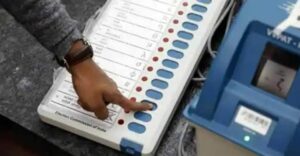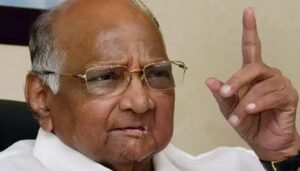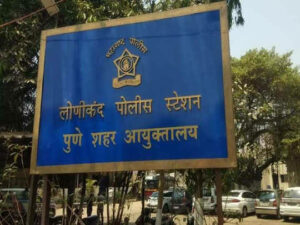India’s ‘no first use of nuclear bomb policy’ may change: Rajnath Singh
Pokhran, Rajasthan (India), August 16, 2019 : Defence Minister Rajnath Singh today visited Pokhran in Rajasthan where India had conducted nuclear tests in 1998 under the leadership of former Prime Minister Atal Bihari Vajpayee, and paid homage to him on his first death anniversary.
In a series of tweets, Shri Rajnath Singh described Atal ji as one of the stalwarts of Independent India and added that it is his good fortune that he has got this opportunity to pay deepest respects to the former Prime Minister at Pokhran.
Raksha Mantri said, “Pokhran is the area which witnessed Atal ji’s firm resolve to make India a nuclear power and yet remain firmly committed to the doctrine of ‘No First Use’. India has strictly adhered to this doctrine. What happens in future depends on the circumstances.”
Shri Rajnath Singh said India attaining the status of a responsible nuclear nation is a matter of national pride for every citizen of the country and the nation will remain indebted to the greatness of Atal ji.
India maintains a “no first use” nuclear policy and has developed a nuclear triad capability as a part of its “minimum credible deterrence” doctrine.
India has developed and possesses weapons of mass destruction in the form of nuclear weapons. Although India has not made any official statements about the size of its nuclear arsenal, recent estimates suggest that India has 130–140 nuclear weapons and has produced enough weapons-grade plutonium for up to 150–200 nuclear weapons. In 1999, India was estimated to have 800 kg of separated reactor-grade plutonium, with a total amount of 8,300 kg of civilian plutonium, enough for approximately 1,000 nuclear weapons.
India is a member of three multilateral export control regimes — the Missile Technology Control Regime, Wassenaar Arrangement and Australia Group. It has signed and ratified the Biological Weapons Convention and the Chemical Weapons Convention. India is also a subscribing state to the Hague Code of Conduct. India has signed neither the Comprehensive Nuclear-Test-Ban Treaty nor the Nuclear Non-Proliferation Treaty, considering both to be flawed and discriminatory. India previously possessed chemical weapons, but voluntarily destroyed its entire stockpile in 2009 — one of the seven countries to meet the OPCW extended deadline.
India has a declared nuclear no-first-use policy and is in the process of developing a nuclear doctrine based on “credible minimum deterrence.” In August 1999, the Indian government released a draft of the doctrine which asserts that nuclear weapons are solely for deterrence and that India will pursue a policy of “retaliation only”. The document also maintains that India “will not be the first to initiate a nuclear first strike, but will respond with punitive retaliation should deterrence fail” and that decisions to authorise the use of nuclear weapons would be made by the Prime Minister or his ‘designated successor(s)’. According to the NRDC, despite the escalation of tensions between India and Pakistan in 2001–2002, India remained committed to its nuclear no-first-use policy.
India’s Strategic Nuclear Command was formally established in 2003, with an Air Force officer, Air Marshal Asthana, as the Commander-in-Chief. The joint services SNC is the custodian of all of India’s nuclear weapons, missiles and assets. It is also responsible for executing all aspects of India’s nuclear policy. However, the civil leadership, in the form of the CCS (Cabinet Committee on Security) is the only body authorised to order a nuclear strike against another offending strike. The National Security Advisor Shivshankar Menon signalled a significant shift from “No first use” to “no first use against non-nuclear weapon states” in a speech on the occasion of Golden Jubilee celebrations of National Defence College in New Delhi on 21 October 2010, a doctrine Menon said reflected India’s “strategic culture, with its emphasis on minimal deterrence.
On 16th August,2019,Defence Minister Rajnath Singh said. “Till today, our nuclear policy is ‘No First Use’. What happens in future depends on the circumstances ” In April 2013 Shyam Saran, convener of the National Security Advisory Board, affirmed that regardless of the size of a nuclear attack against India, be it a miniaturised version or a “big” missile, India will retaliate massively to inflict unacceptable damage.








